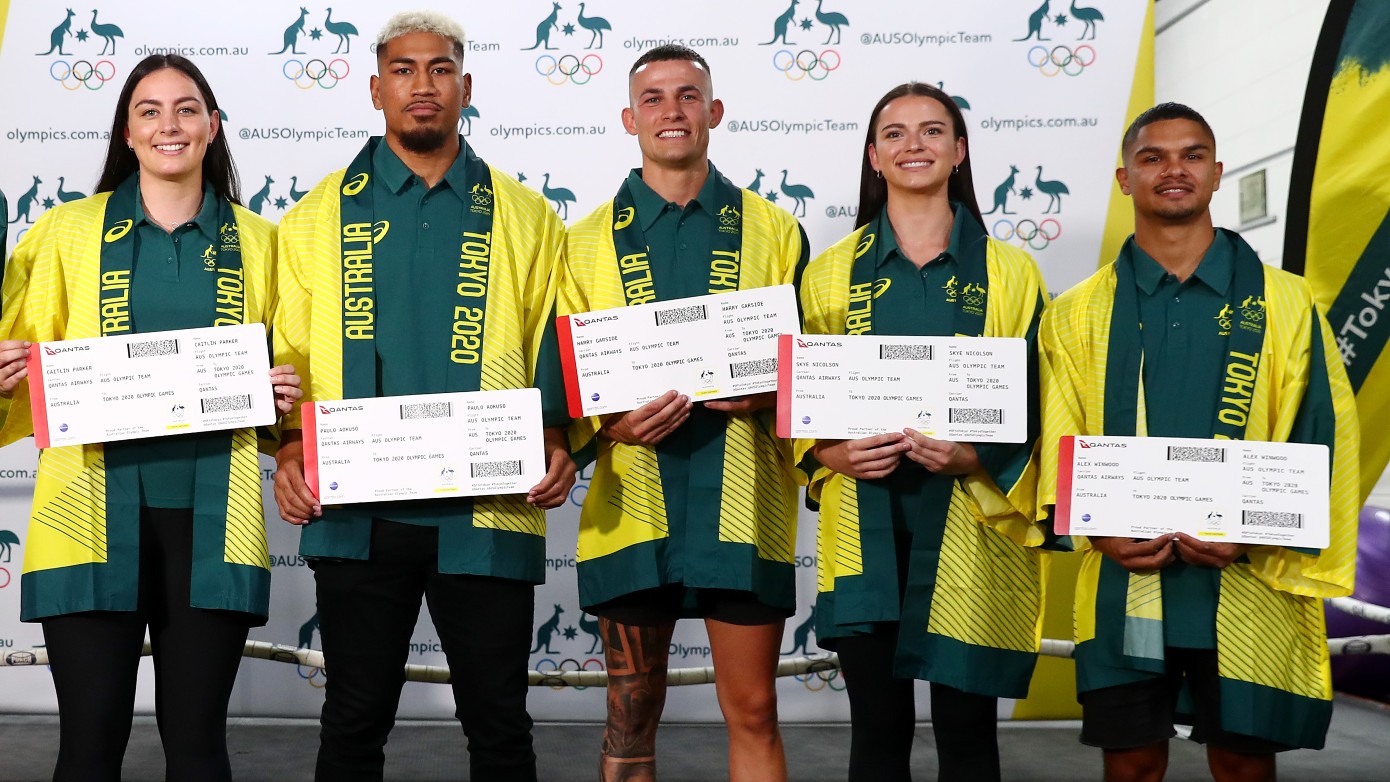Boxing at the Tokyo Olympics starts on the very first day of competition and, for the medalists at least, continues until the final day of the games.
Australia has sent a strong five-person team, including three men and two women, set to compete across five different divisions.
Here's everything you need to know about boxing at the Tokyo Olympics.
WHEN IS BOXING AT THE OLYMPICS?
The first round of events gets underway on day one of the games on Saturday, July 24.
The first boxing gold medal will be decided on Tuesday, August 3 when the women's featherweight final is held.
The last fights of the games will be held on Sunday, August 8 when the final four gold medal matches are contested.
HOW TO WATCH AND STREAM BOXING AT THE OLYMPICS
TV channel: Seven
Live stream: 7plus
Seven will carry live coverage of all Olympic events through its TV network and streaming services.
The network's free streaming platform, 7plus, will be carrying coverage of all the track cycling events.
WHICH AUSTRALIANS ARE BOXING AT THE TOKYO OLYMPICS?
Here is the five-person Aussie team currently in Tokyo.
Skye Nicolson - Featherweight
Caitlin Parker - Middleweight
Paulo Aokuso - Light-Heavyweight
Harry Garside - Lightweight
Alex Winwood - Flyweight
Super heavyweight Justis Huni was ruled out of the Olympics just week before it was due to begin. The Brisbane-based boxer required surgery after his win over Paul Gallen in June.
TOKYO OLYMPICS BOXING DRAW AND SCHEDULE
The official draw for the boxing is being held on Thursday, July 22.
Check here for the complete schedule for the entire two weeks of boxing at the Olympics.
WHAT ARE THE BOXING WEIGHT CLASSES AT THE TOKYO OLYMPICS?
In Tokyo, there are eight weight classes for men (fly, feather, light, welter, middle, light-heavy, heavy and super heavy) and five for women (fly, feather, light, welter and middle).
Men's Olympic weight classes
Fly (48-52kg / 105.8-114.64 pounds)
Feather (52-57kg / 114-125.6 pounds)
Light (57-63kg / 125.6-138.8 pounds)
Welter (63-69kg / 138.8-152.1 pounds)
Middle (69-75kg / 152.119-165.3 pounds)
Light Heavy (75-81kg / 165.3-178.5 pounds)
Heavy (81-91kg / 178.5-200.6 pounds)
Super Heavy (+91kg / +200.6 pounds)
Women's Olympics weight classes
Fly (48-51kg / 105.8-114.64 pounds)
Feather (52-57kg / 114-125.6 pounds)
Light (57-60kg / 125.6-138.8 pounds)
Welter (64-69kg / 138.8-152.1 pounds)
Middle (69-75kg / 152.119-165.3 pounds)
WHAT ARE THE RULES FOR BOXING AT THE OLYMPICS?
Olympic boxing matches are contested over three, three minute rounds.
Five ringisde judges score each bout on a 10-point must scoring system. It's the same set-up as the professional ranks, but with an extra judge in an attempt at avoiding corruption and incompetence ruining a fight.
Headgear is no longer worn at boxing at the Olympics.
OLYMPIC BOXERS WHO BECAME WORLD CHAMPIONS
The Olympics has been the launching pad for some of the greatest fighters the world has ever seen, including multiple world champions at many weight classes and the highest paid sportspeople on the planet.
Muhammad Ali is the first name that springs to mind, with the future three-time heavyweight world champion winning a gold medal at light-heavyweight at the Rome Olympics in 1960.
Two of Ali's great rivals, Joe Frazier and George Foreman won heavyweight golds in 1964 and 1968 respectively, while Oleksandr Usyk (heavy), Lennox Lewis (super heavy), Wladimir Klitschko (super heavy) and Anthony Joshua (super heavy) all went on to become pound-for-pound superstars after winning Olympic gold.
In the lighter weight classes, you can add Andre Ward (light heavy), Vasyl Lomachenko (feather and light), Oscar de la Hoya (light), Pernell Whitaker (light), Meldrick Taylor (feather), Sugar Ray Leonard (light welter, now discontinued), Guillermo Rigondeaux (bantam, now discontinued) all went on to have hugely successful pro boxing careers.
BOXING CONTROVERSY AT THE OLYMPICS
Boxing loves a good controversy, and that extends all the way to the amateur ranks at the Olympics.
Some of the most controversial moments in Olympics boxing history happened to some of the best to ever do it.
Floyd Mayweather was the victim of some atrocious judging in Atlanta in 1996, where he eventually claimed a bronze medal. It was his last ever loss as a boxer. Read more about it here.
Another future hall of famer, Roy Jones Jr. was also on the wrong side of some crooked judging when he was dudded in his gold medal match in 1988.
RJJ breezed through the fight against home town fighter Park Si-hun on the final day of competition in Seoul.
Jones Jr outstruck Park by a margin of 86 to 32 and there are only three people on the whole planet who thought the South Korean deserved to win. Sadly, those three people were the judges that day.
Three of the jduges, Bob Kasule of Uganda, Uruguay’s Alberto Durán and Hiouad Larbi of Morocco awarded the win to Park.
Honestly, it's still embarrassing to watch the fight and know how they scored it.
Check it out here.
Evander Holyfield was also robbed of a chance at winning a gold medal in 1984 when he was controversially disqualified during his semi-final match against New Zealand's Kevin Barry.

